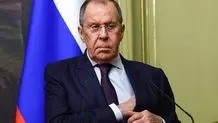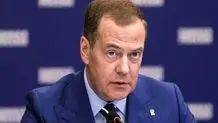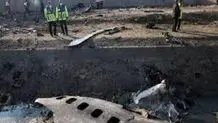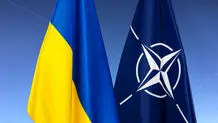‘Thank you, Ben Wallace!’ Ukraine bemused and irritated by UK’s call for gratitude
Ukrainians have reacted with bemusement, mild irritation and irony to Ben Wallace’s notorious comments that the country should be more grateful for the help it is receiving from the UK and other allies as it fights off Russian aggression.

THEGUARDIAN: Ukrainians have reacted with bemusement, mild irritation and irony to Ben Wallace’s notorious comments that the country should be more grateful for the help it is receiving from the UK and other allies as it fights off Russian aggression.
Kyiv previously regarded Wallace as a staunch supporter and friend. His remarks – on the second day of the Nato summit in Lithuania last week – mystified officials. “Whether we like it or not, people want to see a bit of gratitude,” Wallace said, asked about President Volodymyr Zelenskiy’s frustration at not being given a formal invitation to join Nato.
Wallace said Ukraine’s brusque treatment of allies was counter-productive, especially with sceptical politicians in the US Congress and elsewhere. “I told them that last year, when I drove 11 hours to be given a list, that I’m not like Amazon,” he said. He suggested Kyiv’s demands for weapons were insatiable, with more asked for as soon as one system was provided.
In Ukraine there was uncertainty as to whether Wallace’s intervention reflected No 10 policy – something Rishi Sunak later made clear was not the case. One former deputy from Ukraine’s parliament, the Rada, asked the Observer if the “lack of gratitude” comment was a manifestation of England’s baffling class system? “We don’t understand,” they admitted. Ukrainian Twitter, meanwhile, lit up with joking memes.The capital’s motherland monument – a 62m tall stainless steel statue of a woman holding a sword, which looms over the Dnipro river – is about to get a new symbol. The Ukrainian trident will replace the Soviet hammer and sickle on the statue’s giant shield. Max Shcherbyna, a Ukrainian living in Toronto, posted a mocked-up photo with a different message on the famous trident: “Thank you, Ben Wallace,” written in Ukrainian. The tweet garnered 9,000 likes. Other Ukrainians tweeted a gif of the minister’s face, in the centre of a mirror, and surrounded by roses and falling petals. It read sardonically: “Thank you, Ben!”
Zelenskiy took to social media himself to say it was “absurd” for Kyiv to be told it would be welcome in the Nato alliance but without a date or conditions. There was understanding that joining was impossible while war with Russia raged – that would mean a direct conflict between Nato and Moscow – but there was frustration too at the lack of a route map, and at the summit’s vaguely worded final communiqué.
Wallace, who last night announced that he is to quit his post at the next reshuffle and will not stand in the general election, has told friends he was “misquoted”. He portrays his remarks as well-meant message to Kyiv: that it can’t just talk to its supporters, such as the UK. It also needs to reach out to sceptical Americans and Europeans. A substantial minority think Ukraine should stop fighting and accept a peace deal with Russia, he points out.
He shouted over to his defence minister, Oleksii Reznikov, who was sitting at the back of the hall, and asked him playfully: “Oleksii! You are here. Do you have bad relations with the defence minister?”
Reznikov bellowed back: “Amazing!” Switching from Ukrainian to English, a smiling Zelenskiy said: “That’s great. You have to call him. Please.” There was laughter.
In an interview with the Observer in Kyiv, the secretary of Ukraine’s national security council, Oleksiy Danilov, said Wallace’s comments did not reflect British government policy. They came from a surfeit of “emotion”. Nor did they correspond to what Wallace himself – a frequent visitor to Ukraine – really thought about the situation. “I know for sure that is not his position. And with all respect to Mr Wallace, he doesn’t decide everything,” Danilov added. “It’s natural to be emotional. Everyone gets like this.”
Asked if the minister regretted what he had said, about the UK not being an “Amazon warehouse”, Danilov replied: “Probably, yes.”
آخرین اخبار News را از طریق این لینک پیگیری کنید.




